 W
WAzerbaijan National Carpet Museum is a museum located in Baku that displays Azerbaijani carpets and rugs of various weaving techniques and materials from various periods. It has the largest collection of Azerbaijani carpets in the world. It moved to a new building on the Baku's seafront park during 2014 from its former location on Neftchiler Avenue.
 W
WThe Bielsko-Biała Museum, also known as the Castle of the Sułkowski Princes is a museum for the city of Bielsko-Biała, Poland located in the historical Bielsko Castle. Three local branches of the museum have been established since the 1970s: the Julian Fałat Museum, the Museum of Technology and Textile Industry, and the Weaver's House Museum.
 W
WBroderie de Fontenoy-le-Château is a museum in Vosges, France. Opened in 1979, it is noted for its embroidery.
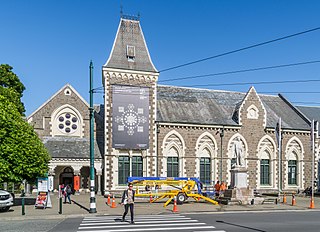 W
WThe Canterbury Museum is a museum located in the central city of Christchurch, New Zealand, in the city's Cultural Precinct. The museum was established in 1867 with Julius von Haast – whose collection formed its core – as its first director. The building is registered as a "Historic Place – Category I " by Heritage New Zealand.
 W
WLocated in Tehran, beside Laleh Park, and founded in 1976, the Carpet Museum of Iran exhibits a variety of Persian carpets from all over Iran, dating from the 16th century to the present.
 W
WThe Central Museum of Textiles is a museum of textiles located in the Ludwik Geyer's White Factory in Łódź, Poland.
 W
WThe City Palace, Jaipur was established at the same time as the city of Jaipur, by Maharaja Sawai Jai Singh II, who moved his court to Jaipur from Amber, in 1727. Jaipur is the present-day capital of the state of Rajasthan, and until 1949 the City Palace was the ceremonial and administrative seat of the Maharaja of Jaipur. The Palace was also the location of religious and cultural events, as well as a patron of arts, commerce, and industry. It now houses the Maharaja Sawai Man Singh II Museum, and continues to be the home of the Jaipur royal family. The royal family of Jaipur is said to be the descendants of Lord Rama. The palace complex has several buildings, various courtyards, galleries, restaurants, and offices of the Museum Trust. The Maharaja Sawai Man Singh II Museum Trust looks after the Museum, and the royal cenotaphs.
 W
WThe Costume Museum of Canada is an institution dedicated to the history of fashion and clothing. The collection is located in Winnipeg, Manitoba, Canada. The museum gallery space was closed to the public in 2010 but the Costume Museum of Canada continues to offer programs such as: pop-up exhibits, heritage fashion revues, hat shows and other educational programs. It is also active on social media and operates a website: https://www.costumemuseumcanada.com/
 W
WThe Museum of Islamic Art is a museum on one end of the seven-kilometer-long (4.3 mi) Corniche in Doha, Qatar. As per the architect I. M. Pei's specifications, the museum is built on an island off an artificial projecting peninsula near the traditional dhow harbor. A purpose-built park surrounds the edifice on the eastern and southern facades while two bridges connect the southern front facade of the property with the main peninsula that holds the park. The western and northern facades are marked by the harbor showcasing the Qatari seafaring past.
 W
WThe Kunstgewerbemuseum, or Museum of Decorative Arts, is an internationally important museum of the decorative arts in Berlin, Germany, part of the Staatliche Museen zu Berlin. The collection is split between the Kunstgewerbemuseum building at the Kulturforum (52.5097°N 13.3674°E) and Köpenick Palace (52.4439°N 13.5728°E).
 W
WThe Kurdish Textile Museum is a museum devoted to textiles produced in Iraqi Kurdistan. It was established in 2004 and is located in a renovated mansion in the southeast quarter of the Citadel of Arbil.
 W
WLüne Abbey is a former Benedictine nunnery in the Lower Saxon town of Lüneburg. Today it is a Protestant Lutheran convent and is managed by the Klosterkammer Hannover. The current abbess is Reinhild Freifrau von der Goltz.
 W
WThe Rheinisches Industriemuseum is a decentralized museum with six locations in Rhineland, western Germany. The locations are:Oberhausen: the main site at the old Zinkfabrik Altenberg, near the Oberhausen main station Ratingen: Textilfabrik Cromford, the first factory in continental Europe, named after the Cromford Mill Solingen: Gesenkschmiede Hendrichs (forge) Bergisch Gladbach: Papiermühle Alte Dombach Engelskirchen: Ermen & Engels cotton spinning mill Euskirchen: Tuchfabrik Müller
 W
WMoMu is the fashion museum of the Province of Antwerp, Belgium. Founded on 21 September 2002, the museum collects, conserves, studies and exhibits Belgian fashion. The museum is specifically focusing on Belgian contemporary fashion designers due to the arisen of a group of Antwerp-trained fashion designers during the Eighties and Nineties(Martin Margiela, Dries Van Noten, Ann Demeulemeester, Walter Van Beirendonck, Dirk Van Saene, A.F. Vandevorst, etc.). The museum's first director was Linda Loppa who was also the founder and the director of the Fashion school of the Royal Academy of Fine Arts (Antwerp). The current director is Kaat Debo.
 W
WThe Moravská gobelínová manufaktura — MGM, is a tapestry manufactory located in the town of Valašské Meziříčí, in the Zlín Region of the Czech Republic. The manufactory has been involved in the area of handmade classical and artistic tapestries, restoring and also creating new pieces with modern themes for more than fifty years. It is considered the first tapestry manufactory in Czechoslovakia, and the only workshop of this kind in Moravia and Czech Silesia.
 W
WThe Mueller Cloth Mill, located in Euskirchen, North Rhine-Westphalia, Germany is a section of the LVR Museum of Industry. The museum provides insight into the production process of a cloth mill by showing fully working machinery and equipment from around 1900. Opened in 2000, the museum preserves the mill's state at its shutdown in 1961. LVR Industrial Museum Mueller Cloth Mill is an ‘Anchor Point’ of the European Route of Industrial Heritage and a central stop on the ‘Wool Route’.
 W
WMusée des Beaux-arts et de la Dentelle d'Alençon is an art museum located in Alençon, France.
 W
WThe textile museum in Česká Skalice is the only Czech museum specialized in the history of textile production. Its displays and collections represent a unique body of work reflecting the development of textile industry, especially cloth printing, in the Czech Republic and abroad. The museum, a branch of the Museum of Decorative Arts in Prague, holds regular exhibitions.
 W
WThe Museum of Textiles and Industry is one of the two museums in Busto Arsizio, Italy, that specialises in spinning and weaving. It was opened in 1997 to house objects, pictures and archive material representing Busto Arsizio's industrial history.
 W
WThe National Textile Museum is a museum in Kuala Lumpur, Malaysia. The museum is open daily from 9am to 6pm, free admission.
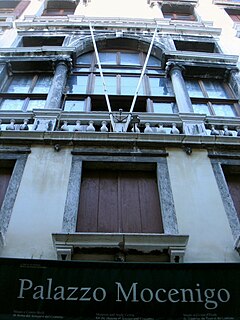 W
WThe Museo di Palazzo Mocenigo is a palazzo near the Church of San Stae, south of the Grand Canal in the sestiere of Santa Croce in Venice, Italy. It is now a museum of fabrics and costumes, run by the Fondazione Musei Civici di Venezia.
 W
WPekalongan Batik Museum is a batik museum located in Pekalongan, Central Java, Indonesia.
 W
WThe National Museum of the Romanian Peasant is a museum in Bucharest, Romania, with a collection of textiles, icons, ceramics, and other artifacts of Romanian peasant life. One of Europe's leading museums of popular arts and traditions, it was designated "European Museum of the Year" for 1996.
 W
WThe Cotton Mill Museum and Factory of San Jose de Suaita is a museum locates in San José de Suaita, Colombia. It is housed in the former Inscomercial High School Building. It was assisted by Pierre Raymond, a French sociologist who started a huge job to keep the history and importance of this industry in Colombia. It first opened in 2006.
 W
WSan Leucio is a frazione of the comune of Caserta, in the region of Campania in southern Italy. It is most notable for a resort developed around an old silk factory, included in the UNESCO World Heritage sites list in 1997.
 W
WShusha Carpet Museum is the Shusha branch of the State Museum of Azerbaijani Carpets and Applied Art, established by the Order of the Ministry of Culture of the Azerbaijan SSR No. 502 of September 26, 1985 to study, preserve and live the traditions of Karabakh carpet weaving.
 W
WShushi Carpet Museum was founded by Vardan Astsatryan in 2011 in Shushi, Republic of Artsakh.
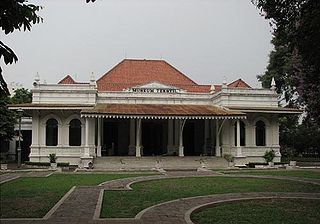 W
WThe Textile Museum is a museum in Palmerah, West Jakarta, Indonesia. The museum houses a collection of textiles from various islands in Indonesia.
 W
WThe Textile Museum of Borås is a museum of textile history in Borås, Sweden.
 W
WThe Textile Museum of Canada, located in Toronto, Ontario, Canada, is a museum dedicated to the collection, exhibition, and documentation of textiles.
 W
WThe Textile Arts Museum is a museum in the city of Lyon, France. Located in two 18th century hôtels particuliers of Lyon's 2nd arrondissement, the institution consists in two distinct collections : the textiles collection and the decorative arts collection.
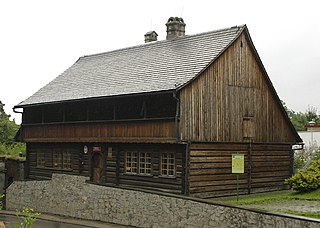 W
WThe Weaver’s House is a unique example of the 18th-century craftsman architecture. Located in Bielsko-Biała, it is situated in the Old Uptown in a log cabin with its characteristic hay store. The building is a museum branch belonging to the Museum in Bielsko-Biała.
 W
WThe Wile Carding Mill is a defunct but still operational carding mill, in Bridgewater, Nova Scotia, Canada. The mill is now owned by the Province of Nova Scotia and operated as a museum by the DesBrisay Museum.
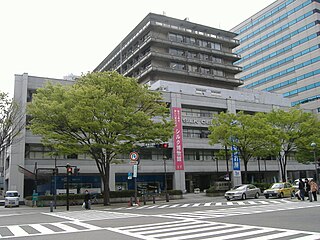 W
WYokohama Silk Museum is a museum located in Naka-ku, Yokohama, Japan that covers the silk trade in Japan. The museum displays silk kimonos and covers the importance of Yokohama as a silk port.